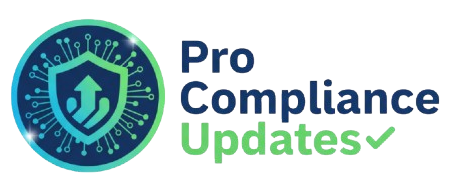In this session we will reverse engineer the process. We will look at problems that arise in the courtroom when defence attorneys do not have the proper documents to defend the company, and what goes right when they do have the proper documents. Through this process we will learn what needs to be kept and should to best defend and protect the company in the event of an employee lawsuits for FLSA overtime, Title VII (discrimination) FMLA and ADA.
WHY SHOULD YOU ATTEND?
We all know that it is important to document events that occur. There is the old expression, “if it is not in the chart it did not occur.” But in some settings not documenting is crucial and fatal. For example, did you know that not keeping track of employee’s hours is fatal to overtime cases. Sometimes you might be documenting items, but focusing on the wrong items. In this seminar we will discuss what needs to be documented and what should be documented that strengthens employers’ defenses in the event lawsuits are filed.
AREA COVERED
- Overview of basic documents in several federal employment laws
- Why stay in compliance?
- Importance of documentation in defending Title VII cases
- What information does the government require you to keep for overtime cases
- How to use documentation to prove FLSA exemptions
- Documents and notification for FMLA and ADA leave
- Documentation in defend trade secrets act
LEARNING OBJECTIVES
- Introduction highlighting the importance of records and notices and discussion on retention, storage, and destruction of records
- Review the recordkeeping requirements of key employment laws to get familiar with the basic rules
- Discussion on other tasks that require complete and accurate documentation
- Understand notice requirements to be aware of what notices need to be posted and how to post them in compliance with the laws
- Case studies on documentation
- And more!!
WHO WILL BENEFIT?
- Compliance Officers
- Human Resources
- CFOs
- Office Managers
- Company Presidents
- Employers and Business Owners
- Hiring Managers
- HR Managers/Supervisors
- Risk Managers
We all know that it is important to document events that occur. There is the old expression, “if it is not in the chart it did not occur.” But in some settings not documenting is crucial and fatal. For example, did you know that not keeping track of employee’s hours is fatal to overtime cases. Sometimes you might be documenting items, but focusing on the wrong items. In this seminar we will discuss what needs to be documented and what should be documented that strengthens employers’ defenses in the event lawsuits are filed.
- Overview of basic documents in several federal employment laws
- Why stay in compliance?
- Importance of documentation in defending Title VII cases
- What information does the government require you to keep for overtime cases
- How to use documentation to prove FLSA exemptions
- Documents and notification for FMLA and ADA leave
- Documentation in defend trade secrets act
- Introduction highlighting the importance of records and notices and discussion on retention, storage, and destruction of records
- Review the recordkeeping requirements of key employment laws to get familiar with the basic rules
- Discussion on other tasks that require complete and accurate documentation
- Understand notice requirements to be aware of what notices need to be posted and how to post them in compliance with the laws
- Case studies on documentation
- And more!!
- Compliance Officers
- Human Resources
- CFOs
- Office Managers
- Company Presidents
- Employers and Business Owners
- Hiring Managers
- HR Managers/Supervisors
- Risk Managers
Speaker Profile
 Stuart Silverman
Stuart Silverman
Stuart Silverman has been practicing law for almost 30 years and is the principal of the Law Offices of Stuart M. Silverman, P.A., located in Boca Raton, Florida. The emphasis of his practice is in the area of labor and employment law, and business and commercial litigation. Mr. Silverman has represented both private and public employers, as well as individual employees in a whole host of complex business disputes and employment settings at administrative levels, and state and federal trial and appellate courts. His extensive employment litigation experience includes claims under age, race, sex discrimination, wage and hour claims, whistleblower …
Upcoming Webinars

Leadership: Strategic Planning and Decision Making

Writing Techniques for Auditors and Risk Management Profess…

Language is Code - Intro to AI - Generative AI - ChatGPT an…

Gossip-Free: Leadership Techniques to Quell Office Chatter

Do's and Don'ts of Giving Effective Feedback for Performanc…

Women’s Hostility to Women at Work: Myth or Reality

4-Hour Virtual Seminar on Audit Proofing your Payroll Opera…

Do's and Don'ts of Documenting Employee Behaviour, Performa…


Retention Starts Here: Stop Losing Your Critical Talent and…


Practice Safe Stress ™: Preventing Burnout While Building R…

Impact Assessments For Supplier Change Notices

Cleanroom, Microbiology and Sterility Assurance Practices f…




Thriving in a Hybrid Workplace: Keys to Leadership and Team…

2-Hour Virtual Seminar on DeepSeek vs ChatGPT AI for CPAs a…

Understanding EBITDA – Definition, Formula & Calculation

FDA Regulation of Artificial Intelligence/ Machine Learning

Construction Lending And Real Credit Administration: Evalua…

Sunshine Act Reporting - Clarification for Clinical Research

How the OBBB Act will Impact Immigration Enforcement! Preve…


2-Hour Virtual Seminar on Outlook - Timesaving Tips and Tri…


Leadership Upskilling: Don’t Just Manage; Lead with Influen…

H-1B Visa Updates and Employer Strategies for 2026

Aligning Your HR Strategy with Your Business Strategy: A Ro…

HIPAA 2025 – Major Changes, Latest Rulings & Guidance

AI for Excel Professionals: Enhancing Productivity with Cha…

Dealing With Difficult People: At Work & In Life

Understanding Accounting for non - Accounting professionals



Excel Power Skills: Master Functions, Formulas, and Macros …
